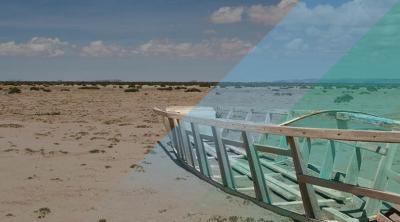CRS in Bolivia
For half a century, Bolivia has persevered through systemic political and economic turmoil. Between 40% and 60% of its people live in extreme poverty. More than a third of Bolivians live in rural indigenous communities, surviving on traditional subsistence farming with diets of mostly Andean grains and vegetables. These communities lose precious resources during natural disasters like drought, hailstorms and torrential rains. Because of climate change and environmental degradation, there is an urgent need to protect rural livelihoods and ecosystems.
From the isolated communities of the Andes to the Amazon, Catholic Relief Services is strengthening livelihoods across Bolivia through programs focused on climate adaption, emergency preparedness, protection and systems innovation. Our primary programs target water and resource management, agriculture, emergency response and recovery, justice and peacebuilding. We partner with Caritas and community-based organizations and institutions to build the local leaders and social support to foster sustainable livelihoods.
Stats
People Served: 36,367
Population: 11,138,234
Size: 1,098,581 sq km; three times the size of Montana
Our Partners
Become a Partner ›CRS' History in Bolivia
Catholic Relief Services has partnered with the Catholic Church and local institutions to improve the quality of life for vulnerable Bolivians since 1955, evolving and expanding along with economic, social and environmental changes. Whether providing housing, water and sanitation systems, agriculture development, emergency response support or natural resource management, our work in Bolivia strengthens the capacity of communities to achieve positive, sustained change.
In the summer of 2014, when the northern Amazon region experienced its worst flooding in 60 years, CRS responded with emergency water and sanitation kits for households and schools, and water systems for communities. CRS has provided key support for water, health and sanitation needs in Bolivia for more than 15 years. Today, our programs focus on ecological sanitation, and integrated water and resource management, including water management for peri-urban greenhouses.
In response to threats and attacks against indigenous groups, we have also worked since 2014 to defend the rights of people living in the Amazon through our Red Eclesial Panamazónica project, in partnership with Caritas.
In addition, CRS has advanced our agriculture programs to include a focus on climate change adaption. We help Bolivians employ a mix of traditional and modern agricultural techniques so that farmers and families can better manage their land. As a result, households can combat desertification and deforestation, and reduce their vulnerability to extreme weather events.



